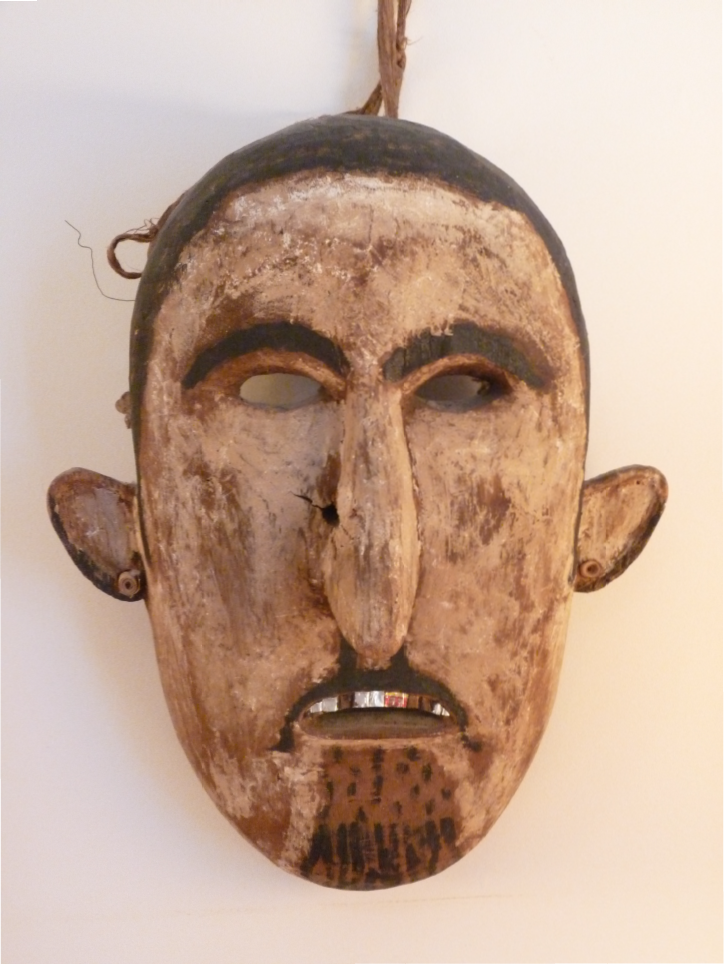Iban Mask
Just as "Dayak" is a general term for the inland dwelling people of Borneo, "Iban" is a somewhat less collective term for people also called "Sea Dayaks," or those inhabiting areas nearer the coast. The Iban were known as powerful warriors and pioneers of headtaking in Sarawak, and much of their artistic and ritual practice emphasises qualities and skills that might be acquired through battle. As such, Iban ancestor masks such as this one often appear fierce or threatening; the foil teeth and nail holes in the chin of this example are particularly effective. This mask, with its bulbous nose, pasty white complexion and metallic teeth, looks like a European and may in fact be one; it is somewhat more likely, however, that its features are meant to be generally frightening.
The Iban were traditionally animist, although the majority are now Christian, some of them Muslim and many continue to
observe both Christian and traditional ceremonies, particularly during marriages or festivals. Significant festivals include the rice harvesting festival Gawai Dayak, the main festival for the Ibans. Other festivals include the bird festival Gawai Burong and the spirit festival Gawai Antu. It is primarily at the Gawai Antu that a mask such as this one would be employed. A secondary use might be at the war-related festivals collectively called Gawai Burong (Bird Festival) held in honor of the war god, Sengalang Burong (The Falcon). This festival originally honored warriors but during more peaceful times evolved into a healing or fortune seeking ceremony.
Image: Wood, pigment, cigarette wrapper foil, hemp cord; 32 x 25.5 x 11.5cm.
Nelson South East Asia Collection © 2025
